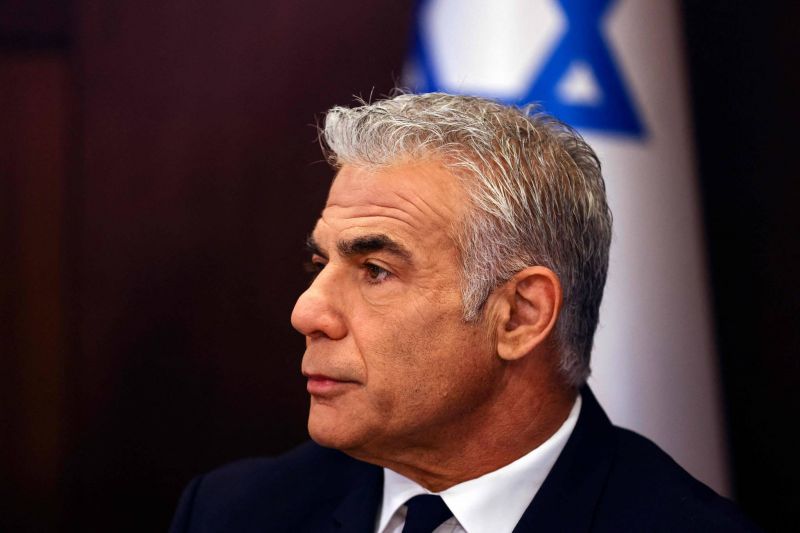
Israeli Prime Minister Yair Lapid. (Credit: Ronen Zvulun/AFP/File)
The agreement between Israel and Lebanon to delimit their shared maritime border "removes" the possibility of new armed conflict between Hezbollah and Israel, Israeli Prime Minister Yair Lapid said during a press conference in Jerusalem Wednesday evening.
"Israel is not afraid of Hezbollah," Lapid added."But if it is possible to avoid a war, it is the responsibility of the government to do so."
On Tuesday, Lapid lauded the "historic" deal to delineate the maritime border with Lebanon following years of intense, indirect negotiations mediated by the United States.
Lapid previously indicated that he wants the agreement to be ratified before Israeli parliamentary elections, scheduled for Nov. 1.
The Israeli government "overwhelmingly" supports the principles of the US-brokered agreement, which could remove obstacles to the development of gas fields in the eastern Mediterranean.
According to officials, the draft agreement calls for the Karish offshore field to be under Israeli control and the Qana reserves, located further northeast, to be granted to Lebanon. But because part of the Qana deposit crosses the future demarcation line, the Hebrew state would receive a share of the future revenues from its exploitation, according to these sources.
"The Karish field is in our sovereign territory, so an attack on it would be an attack on Israel. And we will not hesitate for a second to use force to defend our gas field," Lapid added at the press conference. "Israel will receive approximately 17 percent of the revenues from the Qana/Sidon field (the name given by Israel to the Qana field) if and when it goes into production."
Lapid is campaigning in the Nov. 1 legislative elections against his rival, former Prime Minister Benjamin Netanyahu. The latter has strongly opposed the agreement in recent days, claiming that the Hebrew state was ceding "sovereign territory" to Lebanon and had thus "capitulated" to the threats of Hezbollah.
In 2006, the last major confrontation between Israel and Hezbollah resulted in more than 1,200 deaths on the Lebanese side, mostly civilians, and 160 on the Israeli side, mostly soldiers. Israel and Lebanon remain technically at war, and the United Nations Interim Force (UNIFIL) remains deployed in southern Lebanon as a buffer between the two countries.